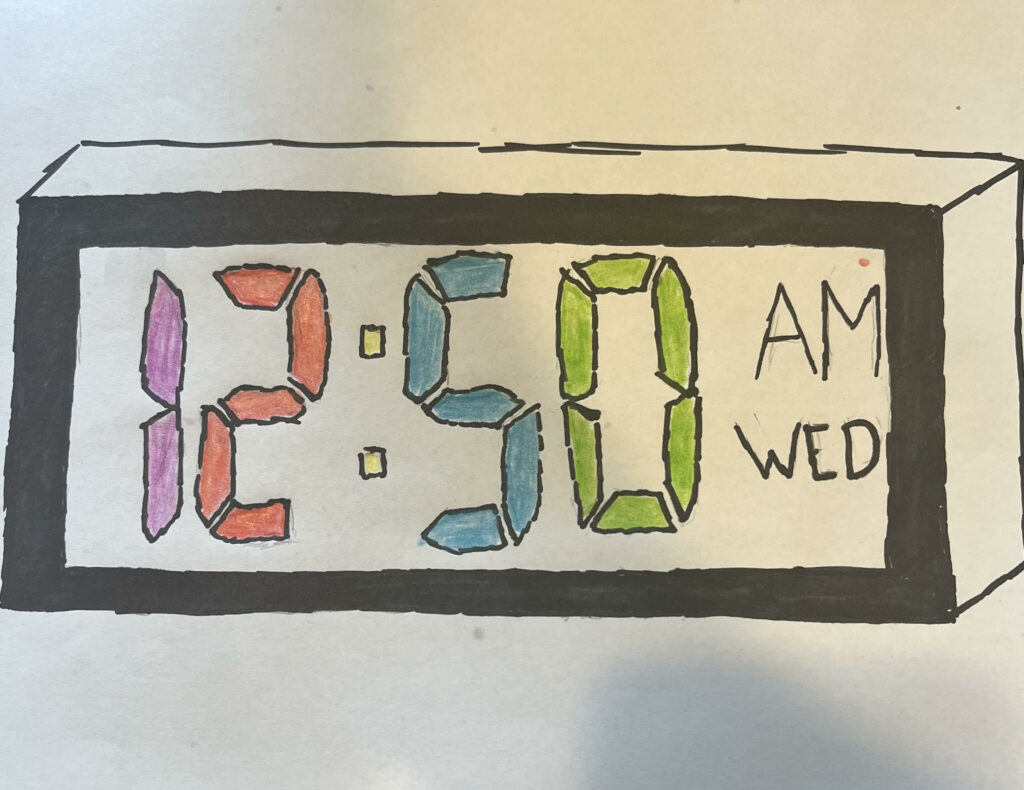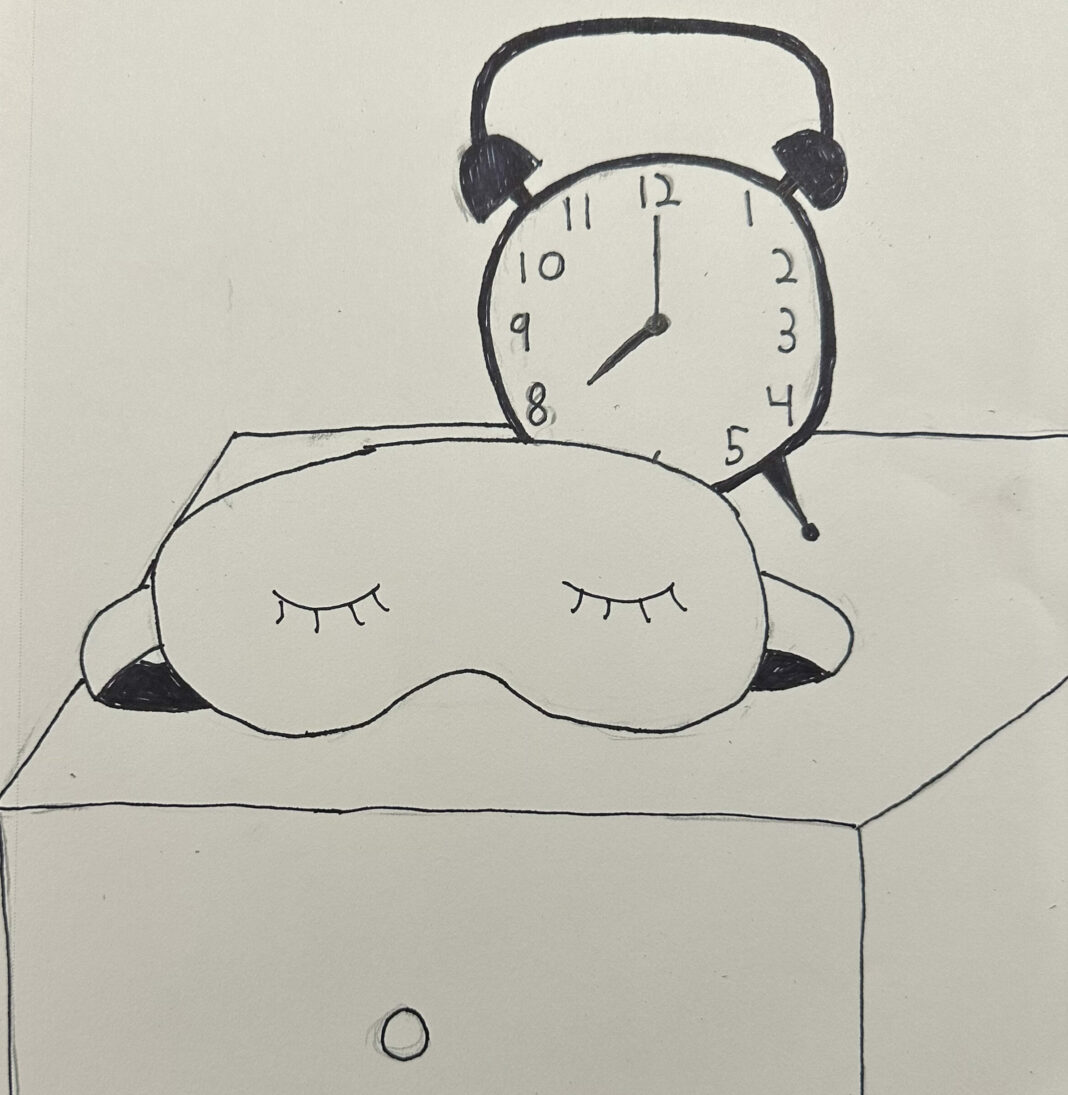Muhlenberg College has a reputation amongst its students of being an extremely busy place. Whether it’s 12:26 pm and you’re waiting for a cappella to end, or it’s 7:58 am and you’re standing outside of your 101 psychology class, there always seems to be some activity or other happening at all hours in the day. But how does this need to be busy and the lack of sleep affect students and their stress levels? How do our stress levels compare to the average person outside of our college? And, most importantly, how could we improve our sleep habits to decrease stress in the short and long run?
To find out, I surveyed 35 random Muhlenberg students and delved into the relationship between stress levels, sleep patterns, and daily routines. The main idea was to shed light on how students manage their sleep, cope with stress, and the impact these factors have on their overall well-being.
According to the survey, Muhlenberg students maintain a relatively late schedule on weekdays, with an average bedtime of 12:50 a.m.. Although this is late, it pales in comparison with average bed time on the weekends where students are falling asleep at an average bedtime of 2:10 a.m.. This disparity suggests a trend towards more relaxed sleep routines during weekends, possibly influenced by social activities or a desire to catch up on rest after a demanding week of academic pursuits.

On weekdays, the average wake-up time for students is right around 8:46 a.m., indicating that the majority rise early to attend classes or other commitments. Weekends appear to be where students afford themselves the luxury of extra sleep, with an average wake-up time of 11:26 a.m..
During the week, students report an average of just over seven hours of sleep per night, barely falling into the recommended 7-9 hours for young adults. Weekends at least seem to offer an opportunity for students to catch up on sleep, with an average of nine hours per night.
The time it takes for students to fall asleep varies, with an average of 23.5 minutes. Factors such as stress, bedtime routines, and screen time before bed can influence how long it takes to fall asleep.
Students spend an average of about 35 minutes engaging with electronics/screens before bedtime. Excessive screen time before sleep can negatively impact sleep quality due to the exposure to blue light, which can interfere with the body’s natural sleep-wake cycle. This may explain why the majority of students (65.71%) report often experiencing stress or anxiety before bedtime. This finding underscores the importance of implementing effective stress management techniques to promote better sleep quality.
Students in the survey reported also feeling excessively sleepy during the day an average of about two times per day. This can be attributed to various factors, including sleeping too little, poor sleep quality, and high stress levels. This coincides with the fact that nearly half of the students (45.71%) frequently take naps during the day, with an average nap duration of about 37 minutes. While napping can provide a temporary energy boost, excessive or prolonged napping may disrupt nighttime sleep patterns.
This highlights some of the sleep patterns and stress levels among Muhlenberg students, shedding light on the importance of prioritizing sleep for overall well-being. However, it’s also valuable to consider broader research on sleep habits beyond the campus.
Recent research, involving a sample of 67,254 adults, provides insights into sleep patterns among the general population. The sample comprised 52,523 males and 14,731 females, with an average age of 50 years old. Surprisingly, approximately 30% of adults demonstrated an average sleep duration falling outside the recommended 7-9 hours per night.
Furthermore, even among participants with an average sleep duration within the recommended range, about 40% of nights veered outside this optimal window. Alarmingly, only 15% of participants managed to achieve the recommended 7-9 hours of sleep on at least five nights per week. Gender disparities were evident, with female participants exhibiting significantly longer sleep durations than their male counterparts. Additionally, middle-aged participants reported shorter sleep durations compared to both younger and older individuals.
These findings highlight a major issue: a significant proportion of adults fail to consistently meet the recommended sleep duration guidelines. The evidence of irregular sleep patterns raises important questions about the adequacy of current sleep health throughout the entirety of our modern world, not just at Muhlenberg.
But what do experts say can be done to actually improve our sleep? Well, a separate recent study delving into the association between sleep patterns and sleep hygiene practices actually helps to shed light on the crucial factors affecting sleep quality. Conducted on a population ranging from ages 18 to 65, the study offers valuable insights for enhancing sleep hygiene.
This second study, involving 2050 participants, delved into various lifestyle habits and their impact on sleep. Findings revealed that pre-bed screen usage negatively affected sleep quality, while consuming a large dinner and evening caffeine led to shorter and more difficult sleep initiation. Smokers experienced were shown to have difficulty falling asleep. Interestingly, some bedtime routines didn’t consistently aid sleep. Recommendations from the study include morning exercise, avoiding heavy meals and caffeine before bed, reducing screen time pre-sleep, and quitting smoking to enhance sleep quality.
So how does that apply to you and me? Well, it suggests that instead of getting the five piece chicken tender and fry meal from GQ, maybe go for a smaller, healthier option if you want your sleep to come to you sooner. If you go out to hang out with friends on a Friday night, maybe block in some cool down time where you can do something off of your phone so that you can sleep well throughout the night. And maybe, instead of your routine consisting of staying up until the last possible minute to finish your essay, try to complete it earlier so that stress right before bedtime is less likely.
It’s clear that the shown sleep patterns are impacting the stress levels of many Muhlenberg students. Late nights and not enough rest are common, with stress that often keeps us up at night. But there’s hope! Following simple steps for taking care of ourselves is key to doing well in school and feeling good overall, so let’s work together to prioritize our sleep and well-being.























